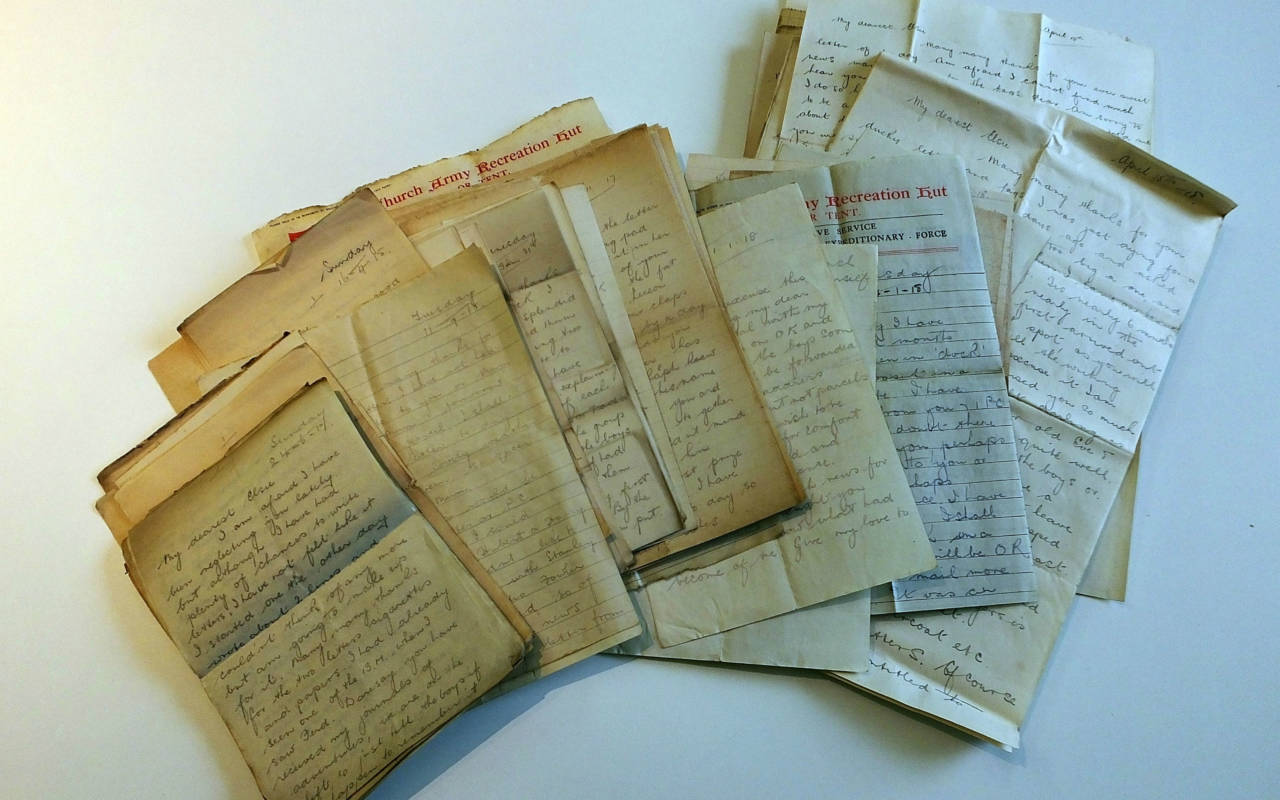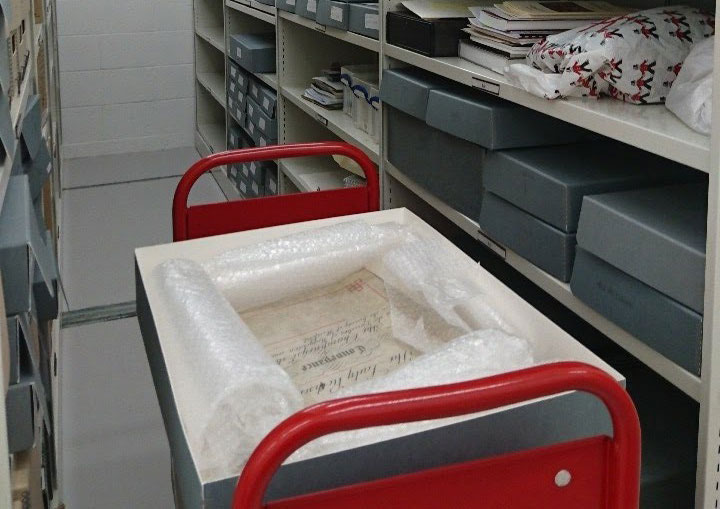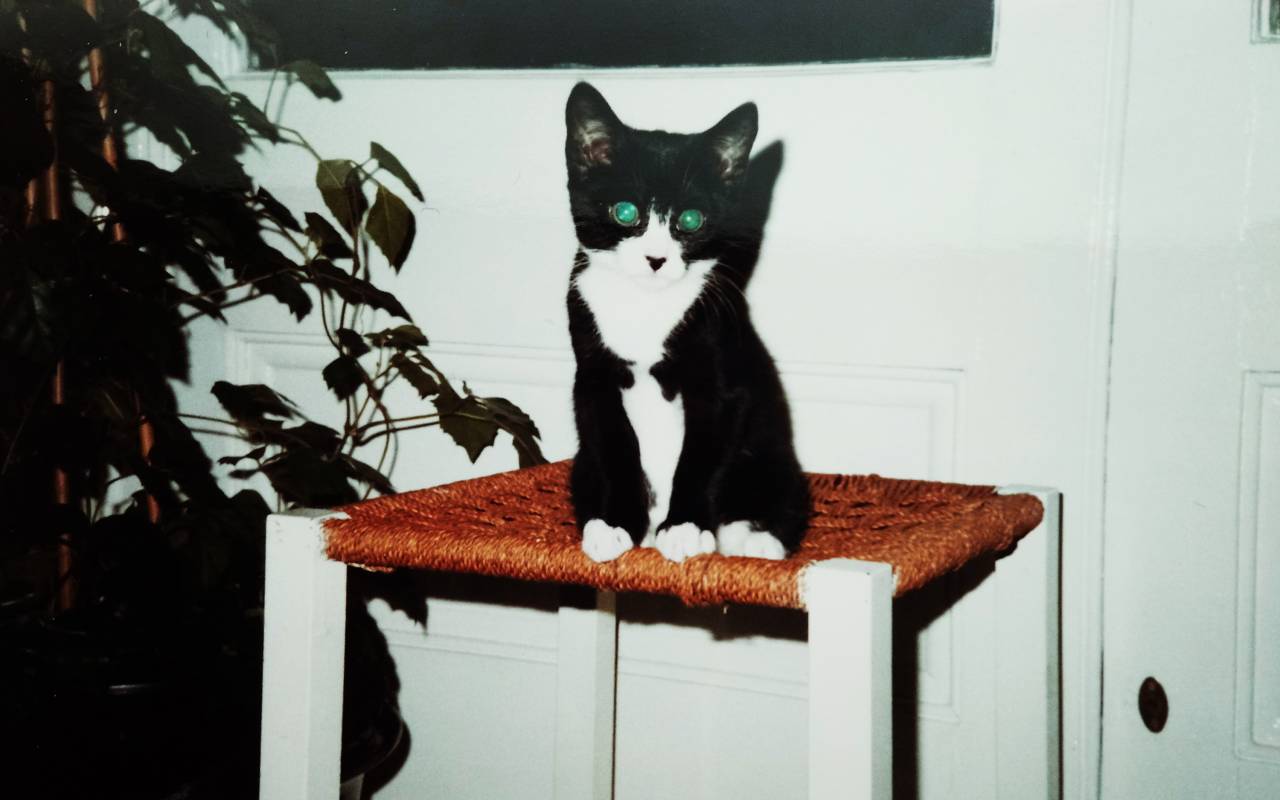
From the Falklands to a cat called Trixie: cataloguing Dorothy de Rothschild’s letters
This summer marks the end of a two year project to catalogue the letters received by Dorothy de Rothschild from 1957 until her death in 1988 - over 6600 items in total. These documents offer a unique insight into international life during the 1950s-1980s, in exquisite, and often unexpected, detail.
By cataloging Dorothy’s correspondence, the Waddesdon Archive can make the letters accessible to external researchers, so they too can explore the remarkable stories contained within. These letters are particularly exciting, as they cover the period when Waddesdon became part of the National Trust, offering a behind-the-scenes look at how the Manor was transformed from a private home to a visitor attraction.

Archival cataloguing involves creating entries for each item, by adding a reference number, title, date, author, and description of the object in question. The files should also be kept in their ‘original order’, in this case the order Dorothy de Rothschild chose to file the correspondence. With such modern letters, access to any sensitive material must be tightly controlled so extra care is taken.

The topics discussed in this correspondence range from international tensions during the Falklands Conflict and the development of the new state of Israel (only established in 1948), to more domestic matters. A good example can be found in a file of copied letters written by Rozsika Rothschild, between May and Jun 1940; amidst letters documenting the progress of the Second World War, she notes that the strawberries were thriving, and the gardens were ‘a riot of blazing colour’.

The letters also include thank you notes for gifts and support, given to friends, family members, and staff. From these we know who Dorothy de Rothschild sent Christmas turkeys, birthday chocolates, get-well-soon flowers, and the latest kitchen gadgets to. Many of Dorothy de Rothschild’s own interests are also revealed, such as her concern for local charities, her keen interest in the work of the Royal Voluntary Service, and her love of the BBC’s Yes Minister.
Dorothy de Rothschild’s correspondents also write to her with news of their families, with births, marriages and deaths and accounts of increasingly exotic holidays, often accompanied by photographs.

Though it was not only people that Dorothy wrote about, as a surprising amount of ink is expended discussing the adoption and well-being of family pets. One Israeli couple wrote contrasting letters to Dorothy, with the husband reporting that shells were falling near their home during the Six-Day-War, while the wife informed her of the death of their beloved dog. Another, unidentified author, writes to tell Dorothy de Rothschild that she has adopted a new cat, Trixie Tinkerbell (also known as Rambo), who ‘is the light of my life and nothing is safe when she’s on the prowl’.
Written by Hannah Dale, Assistant Archivist at Waddesdon







